Women shatter glass ceiling under Museveni
Oct 30, 2020
The President has been at the forefront of promoting affirmative action, to improve the lives of women in all spheres of life.

SPONSORED CONTENT
Ever since he assumed leadership in 1986, President Yoweri Museveni has strived to uplift women.
He strongly believes they are a powerful force for growth of the country and Africa at large.
Indeed, he has been applauded internationally for increasing their numbers in representative politics, after placing them in strategic offices.
The President has been at the forefront of promoting affirmative action, to improve the lives of women in all spheres of life.
No doubt, women's professional organisations, religious associations, non-governmental development organisations, rural self-help groups, and feminist policy advocacy groups have thrived under Museveni's leadership.
In her paper No short-cuts to power: Constraints on women's political effectiveness in Uganda published in Cambridge University press, Anne Marie Goetz shows that high-profile appointments of women to senior civil service positions have taken women far.
Below are some of those appointments;
Vibrant presence in cabinet
Uganda also has a fair share of female representation at cabinet level, which stands at 34%, much better than the previous governments, though still below the parity standard set by the African Union.
In fact, overtime, Museveni has handed over ministries that have not been performing to people's expectations, to women, to lead them.
For example, in the education ministry, Hon. Janet Kataaha Museveni has achieved great milestones.
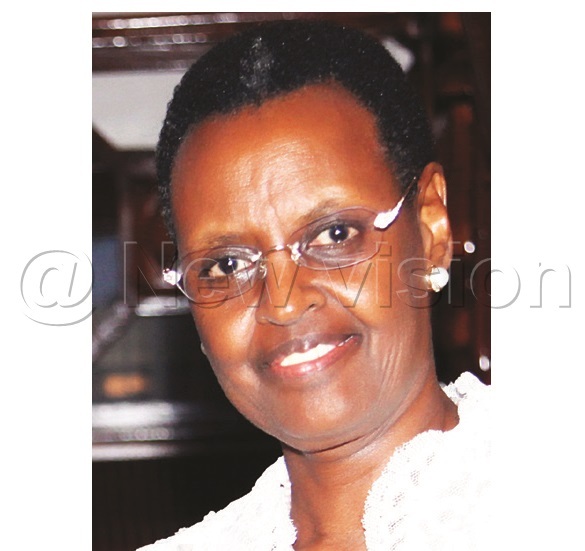
While speaking at the end of year staff retreat at the Cricket Oval in Lugogo last year, she listed achievements like construction of 54 primary schools and 84 being built.
She also pointed to the Education Refugee Response Plan that was launched, major sports victories and the many teachers' conferences held, among others.
Amelia Kyambadde heads the Ministry of Trade, Industry and Co-operatives, where she has worked on the basis of the national trade policy to achieve a lot of things like putting in place laws that help to regulate local and regional trade.
Buy Uganda, Build Uganda (BUBU) has also done a lot to support the local industry.
Health minister, Dr Jane Ruth Aceng and permanent secretary, Dr Diana Atwine have worked tirelessly to fight corruption, drug theft and absenteeism of the health workers.
They are also at the forefront of the COVID-19 fight. On the other hand, despite inadequate funding at the lands ministry, ministers Idah Erios Nantaba, Sarah Achieng Opendi, Beti Kamya, Betty Amongi and Persis Namuganza have registered some achievements over time.
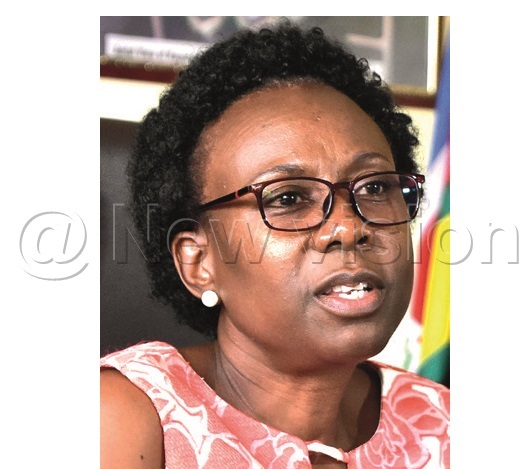
These include opening up of more offices across the country, a move which has helped many Ugandans to access services.
They have also fought against illegal evictions and land grabbing. Still on land affairs; Capt. Gertrude Njuba, who briefly served as deputy minister of relief and social rehabilitation, now heads the land directorate in the Office of the President. She has tirelessly fought land grabbing.
The Ministry of Energy and Mineral Development has had, Dr Mary Goretti Kitutu and engineer, Irene Muloni.
These women have steered significant improvements in the petroleum, mineral and power generation sectors.
More Ugandans have been connected to the power grid and dams have been built.
Besides, Uganda has a fair oil production sharing agreement at 75%, while the oil companies will get 25%.
Other ministries like Information, Communication Technology and National Guidance, Office of the Prime Minister (General Duties), the Ministry of the Presidency, Kampala Capital City and the Office of the Government Chief Whip are headed by women.
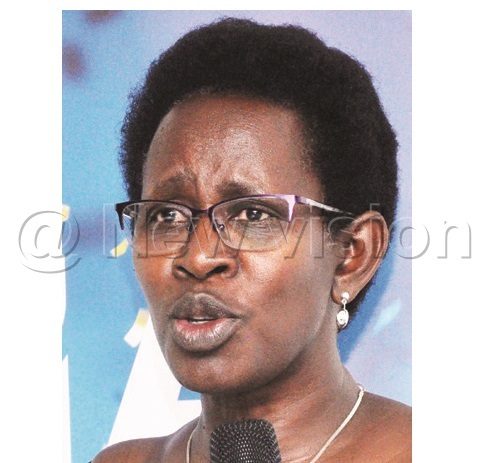
The finance ministry has seen Maria Kiwanuka who took over from Syda Bumba. Uganda NV28 had last seen a woman finance minister, Mayanja Kyompitira Sebalu, in 1961.
Women steer authorities
Museveni has continuously placed women at the helm of authorities, such as the Uganda Revenue Authority (URA), Uganda National Roads Authority (UNRA) and the Uganda Investment Authority (UIA), among others.
At URA, the first female commissioner general, Allen Kagina, retired in 2014, after 10 years of leading the country to unprecedented growth.
She restructured and re-branded the tax body, which resulted in much more revenue collected.
She was succeeded by Doris Akol, who served for five-and a-half years. During her tenure, URA evolved from having a militarised anti-smuggling unit to civilian-based customs enforcement function.
There was also introduction of the Single Customs Territory (SCT) procedure that has reduced clearance time from 18 days to 4-6 days and from manual cash-based systems of revenue collections to commercial banks, mobile money, internet based banking, and financial intermediaries.
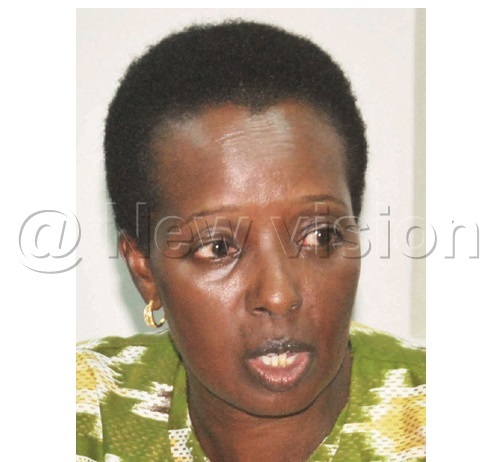
Meanwhile, Kagina was moved to UNRA in 2015, at a time when the body was marred with a huge corruption scandal.
She overhauled it: sacked almost the entire human resource and advertised the jobs.
Her contract was recently renewed, after the board evaluated her performance as exceeding expectation.
Museveni appointed, Dr Maggie Kigozi to lead UIA, guiding and driving investment in the country.
For 11 years, she promoted Uganda as an investment and tourism destination. During the many foreign trade shows, exhibitions and conventions that UIA attended, Kigozi would attract tourists and investors to the country.
In 2017, Jolly Kamugira Kaguhangire was appointed to Kigozi's office, but her four year contract was terminated a year after, by the board.
She was accused of abuse of office, incompetence, gross insubordination, nepotism and concealment. Museveni tried to plead for her case in vain.
Commissions of inquiry
In 1996, Museveni appointed, Justice Julia Sebutinde, Judge of the High Court. She chaired three probe commissions investigating allegations of corruption that shook the Police force, defence ministry and URA.
Her commissions helped to scale down corruption, which costs Uganda sh500b annually, according to World Bank reports.
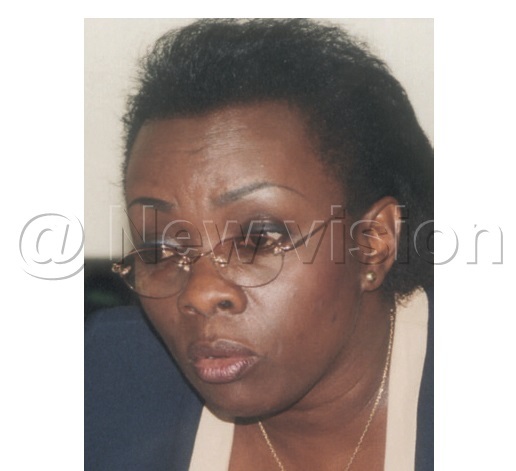
Two of her recommendations to the Police changed Uganda's political landscape, mostly the one of suggesting that the force be led by an army officer. Lt Gen Katumba Wamala was appointed and later succeeded by Gen. Kale Kayihura, in 2005.
Sebutinde also passed an ultimatum to URA employees to declare their wealth, among others.
She is now serving on the International Court of Justice since March 2012 and vying for reelection.
Museveni has rallied the international community to throw its weight behind Sebutinde, the first African woman to serve in this position.
On the other hand, Justice Catherine Bamugemereire heads the commission of inquiry into land grabbing and land wrangles that started in 2017.
She has made a name for fearlessly grilling the ‘untouchable land grabbers'.
She is also remembered to have kicked the then Deputy Attorney General Mwesigwa Rukutana, out of the commission hearing for what she called ‘misbehaving'.
Bamugemereire has so far chaired three national investigations on matters of corruption that have greatly impacted those government departments.
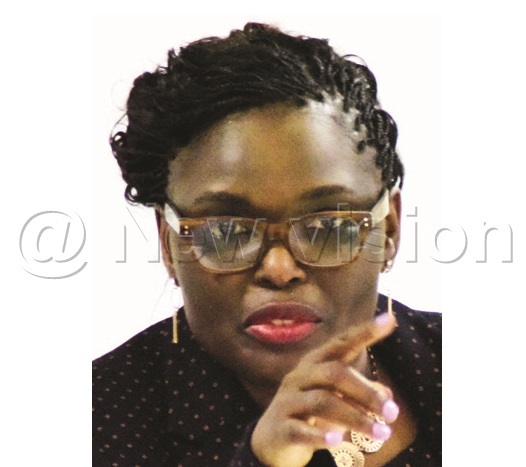
Judiciary
Museveni has always put women among those at the helm when it comes to the judiciary.
Notable appointments include Solome Balungi Bossa, appointed to Court of Appeal.
She also served as Judge at the Uganda High Court from 1997-2013 and a member of the East African Court of Justice for five years, among others.
In 2014, she received death threats for annulling the Anti Homosexuality Act for not being passed with the required quorum.
She is now judge at the International Criminal Court (ICC).
Another notable appointment was that of the late Chief Justice, Laeticia Mukasa-Kikonyogo, a woman of many firsts.
She was the first Ugandan woman magistrate Grade I (19711973), the first woman Chief Magistrate (1973-1986), the first woman High Court judge (1986), first female justice of the Supreme Court and first female Deputy Chief Justice.
She was also the head of the Court of Appeal, president of the Constitutional Court and first African president of the International Association of Women Judges.
She was a human rights activist who was vocal in her fight for women and children's rights.
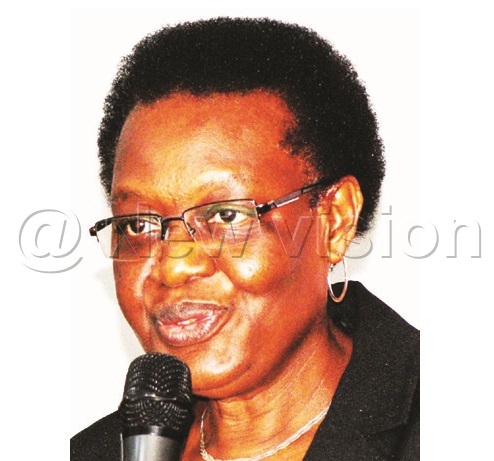
She inspired many women in the male dominated legal arena.
Additionally, Museveni appointed Christine Nakaseeta Binayisa Kitumba as Supreme Court Justice in 2009. But before that, she was a member of the Court of Appeal.
Inspector General of government
In 2001, Faith Mwondha was appointed to the High Court and in 2005, she was appointed IGG.
She was fearless when it came to matters of justice. For example, she once had a public spat with Maj Gen Kahinda Otafiire over the planned redevelopment of Nakawa and Naguru housing estates.
Mwondha told tenants to ignore Otafiire's warning pending the outcome of an investigation.
She would also put several cases of corruption against local leaders, though many would collapse.
After serving her tenure in 2012, Museveni tapped Justice Irene Mulyagonja from the commercial division of the High court, to replace Mwondha.
She served for seven years after which Museveni appointed her to the Court of Appeal.
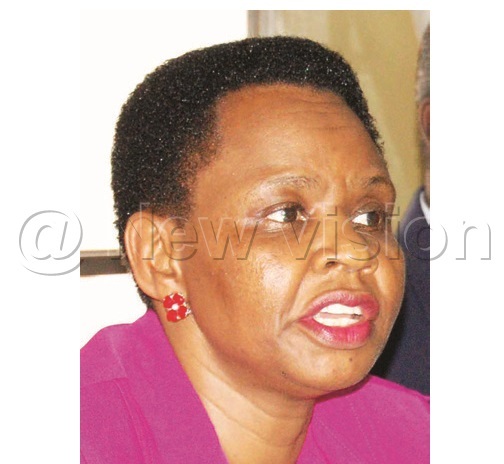
In 2018, the President appointed his former personal assistant, Lt Col Edith Nakalema, as the head of the State House Anti-Corruption Unit that is already shaking officials alleged to have committed corruption.
Leading Kampala metropolitan city
For many years, Kampala city had been amiss with corrupt leadership at City Hall and a stench that spilled over to the suburbs.
In 2011, Museveni appointed Jennifer Ssemakula Musisi as the executive director of Kampala Capital City Authority (KCCA).
She was the talk of town, thanks to her fearless determination to put the city to order. Her policies revamped Kampala and, for the first time, it looked like a real city.
For eight years, Musisi restored sanity at the City Hall, threw vendors off the streets and recovered many of KCCA's properties from, among others, a former mayor and an army general.
She also brought the mighty UTODA (Uganda Taxi Owners and Drivers Association) on its knees.
Not even the threats to her life could slow her down. During her tenure, over 210km of roads were reconstructed and upgraded to Bitumen and over 500km of gravel roads maintained.
KCCA was also able to install traffic signals at 20 junctions, installed 4,988 streetlights, promoted education, health and transparency in revenue collection.
Impressed with her work, Museveni declared, on Women's Day in 2012, that if he had 1,000 Jennifers, Uganda would be a very fine country.
After she resigned last year, she was replaced with Dorothy Kisaka.
Museveni has also appointed female ministers, believing that they can effectively manage Kampala affairs.
These are Betty Amongi who replaced Beti Kamya as Minister for Kampala Capital City and Metropolitan Affairs and Benna Namugwanya, the state minister for Kampala Capital City Authority.
